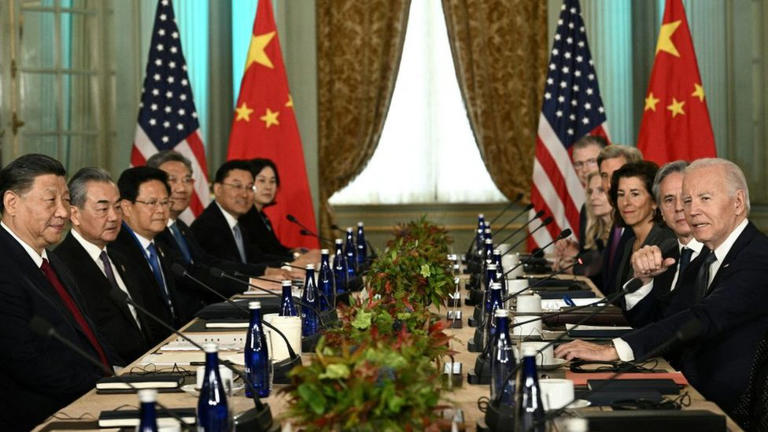According to Katherine Tai, the top trade official of the United States, the significant decrease in trade with China may not necessarily be a negative development. She suggested that it could signal positive diversification efforts on both sides, indicating a shift in trade dynamics.
The United States recently announced an investigation into potential national security risks posed by cars manufactured in China. Concerns revolve around the possibility of tech-connected vehicles collecting personal data or being remotely controlled, highlighting differences between the two countries.
Chinese car companies have been expanding globally but have minimal presence in the US due to existing import duties of 25%. In response, the White House described its action as “unprecedented” and a fair reaction to Chinese policies that restrict foreign car companies.
Trade data reflects a decline in goods exchanged between the US and China, with US imports from China decreasing by over 20% to $427 billion last year, while exports to China fell by 4% to just under $148 billion. Key sectors affected include consumer electronics, machinery, and clothing.
While trade between the two nations reached a record high in 2022, it has since declined as several major US firms have shifted production away from China. Trade expert William Reinsch of the Centre for Strategic and International Studies sees this decline as indicative of both economies moving apart amid escalating tensions.
Ambassador Tai pointed out that increased imports from Southeast Asia into the US may include products from Chinese companies that have relocated production or are routing their goods through third countries to avoid tariffs and restrictions. This underscores the competitive pressures stemming from China’s economic development.
Speaking at the World Trade Organization’s meeting in Abu Dhabi, Ambassador Tai emphasized the need for reform within the institution to address these challenges effectively. She noted that the WTO, while essential, is showing signs of age and must adapt to modern trade dynamics.
The meeting of trade ministers, extended into a fifth day, aims to secure agreement on updating global trade rules. However, achieving consensus among all 166 members is challenging.
Key topics under discussion include fishing subsidies, extending the ban on e-commerce tariffs, and reforming the WTO itself to better address contemporary trade issues.
The US has been advocating for reform within the WTO in recent years, particularly during the presidency of Donald Trump. His administration challenged the dispute resolution mechanism, arguing that it disproportionately favored China over the US. This stance has persisted under President Joe Biden, although specific reform plans have not been publicly disclosed.
Ambassador Tai emphasized the importance of the WTO serving the interests of all its members, irrespective of size.
Trade tensions between the US and China have escalated under the Biden administration, leading to the imposition of new trade barriers by both sides. This includes restrictions on exports of computer chips, exacerbating existing shortages in the global supply chain.
In response to these developments, Liu Pengyu, a spokesperson for the Chinese Embassy in Washington, highlighted the mutual benefits of maintaining strong economic ties between the two countries. He expressed hope for collaborative efforts to address global challenges and urged the US to align its approach accordingly.
In anticipation of the Abu Dhabi meeting, Dr. Ngozi Okonjo-Iweala, Director-General of the World Trade Organization (WTO), emphasized the organization’s efforts to mediate between the US and China, aiming to address their differences and prevent further escalation.
Both the US and China are expanding their economic influence in regions like Africa and Asia, seeking access to natural resources and bolstering supply chain resilience.
Concerns have emerged about a potential bifurcation of the global economy into two trading blocs. Dr. Okonjo-Iweala cautioned against this trend, warning that it could inflict significant harm on the world economy if left unchecked.
According to a WTO study, such a division could result in a 5% reduction in global GDP, a substantial figure particularly amid existing challenges such as rising interest rates and inflation.
